- IDP China>
- 课程库>
- 工程与技术>
- 工程>
- 生物医学工程>
- Doctor of Philosophy in Biomedical Engineering - Molecular, Cell and Tissue Engineering
Doctor of Philosophy in Biomedical Engineering - Molecular, Cell and Tissue Engineering

学历文凭
Ph.D.

专业院系
Department of Biomedical Engineering

开学时间

课程时长

课程学费

国际学生入学条件
IDP—雅思考试联合主办方

雅思考试总分
8.0
- 雅思总分:8
- 托福网考总分:100
- 托福笔试总分:550
- 其他语言考试:NA
CRICOS代码:
申请截止日期: 请与IDP联系 以获取详细信息。
课程简介
相关申请
 预科
预科 奖学金
奖学金 实习机会
实习机会 在校学习
在校学习 跨境学习
跨境学习 校园授课-线上开始
校园授课-线上开始 在线/远程学习
在线/远程学习
开学时间&学费
学费信息仅供参考,请与IDP联系以获取详细信息
| 开学时间 | 时长 | 学费 | 地点 |
|---|
学校排名

世界排名59
数据源:
泰晤士高等教育世界大学排名
关于加州大学戴维斯分校

加州大学戴维斯分校位于加州北部的中心---戴维斯市。戴维斯市是一个由68,000人组成的充满活力的大学城,距离加州首府仅有15分钟的路程,距离世界级旅游胜地,如:旧金山湾区、硅谷太浩湖和纳帕谷也不到2小时的车程。学校所处优越的地理位置为学生接触环境、技术、医疗健康等世界领先行业提供便利条件。戴维斯市属于地中海气候,夏季干燥,冬季温和,每年平均日照265天,非常事宜开展户外活动。大部分学生选择居住在戴维斯市,构成了将近一半的人口。加州大学戴维斯分校以其卓越的科研、本科学术发展而闻名。作为加州著名的公立大学之一,加州大学戴维斯分校兼具加州大学系统的教学优势及私立大学环境优势,提供友好、安全小城镇环境。加州大学戴维斯分校还因其锲而不舍的治学精神而闻名(被称之为“农学院的骄傲”)。加州大学戴维斯分校拥有全美最大的体育项目之一(参与了全美大学体育联盟第一级竞赛),拥有全美影响力最大的学生社团之一。国际学生俱乐部和校内国际公寓为结识新同学、课外娱乐提供了一个良好的平台。另外,加州大学戴维斯分校学习资源丰富,为学生提供学业指导,对未来继续深造及就业做好准备。国际学生和学者服务中心(SISS)为国际学生提供签证办理和移民咨询服务。SISS 开办的“全球大使辅导计划”为国际学生和美国学生与新生和转学生提供互相交流与学习的机会。另外,SISS还提供一系列的研讨会,以帮助学生了解课堂学习,更好地平衡学业与社会活动。加州大学戴维斯分校是全美最具综合性大学之一,在《美国新闻与世界报道》公布的全美公立大学中位列第8位,加州大学戴维斯分校工程学、兽医学、生物科学、企业管理、农业 和可持续发展等专业尤为突出。同时,加州大学戴维斯分校荣居前96所“美国最佳学校”第一名(根据2012年数据),被《塞拉杂志》评为“绿色大学”第6名。加州大学戴 维斯分校教师专业论文发表数量位居第一名,涉及生态与环境、农业、昆虫学、食品科学与营养、植物与动物科学等专业领域。加州大学戴维斯分校本科科研中心为所有本科生提供科研机会。有超过一半的在校生与教师一起参与科研。学生可选择农业可持续发展学院、博德加海洋实验室、基因组研究中心、King Hall法学院、蒙达维葡萄酒及食品科学学院、太浩湖环境研究中心、加州大学戴维斯分校医学中心等学院及中心的科研项目。加州大学戴维斯分校的教师除教学外,还从事尖端科学研究,涉及农业、环境、健康、能源、经济与公共政策等领域。学术成就中心开设了一门名为“美国文化价值观和大学教育经验”的课程,有助于国际学生及时调整在美国的学习及生活,充分利用学校资源。实习与就业指导中心开展职业规划讲习班、提供简历指导、安排实习活动。学校为大一和大二的学生提供校内寄宿。学生宿舍楼内配有计算机实验室、互联网、学术学习资源等。校内寄宿方式有利于培养创新与领导力。所有申请者入学标准相同。如果申请者曾在非美国高中就读,其课程及成绩都将予以考虑。另外,申请者还需出示英语水平证明。
本校相关课程
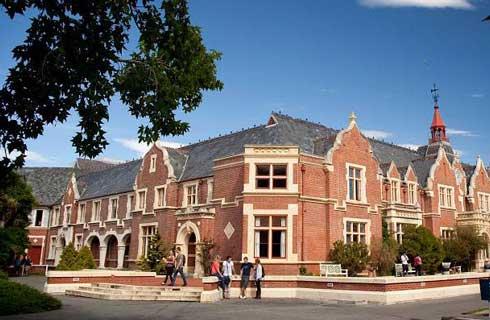
Doctor of Philosophy in Sociology
学历文凭
Ph.D.
开学日期
课程费用总额

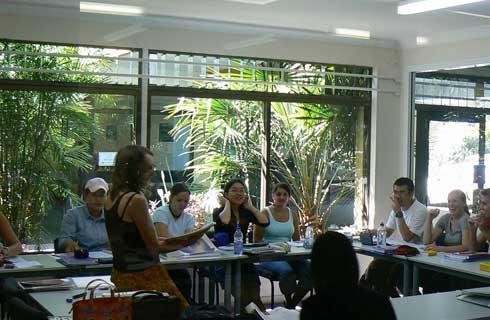
Doctor of Philosophy in Psychology
学历文凭
Ph.D.
开学日期
课程费用总额

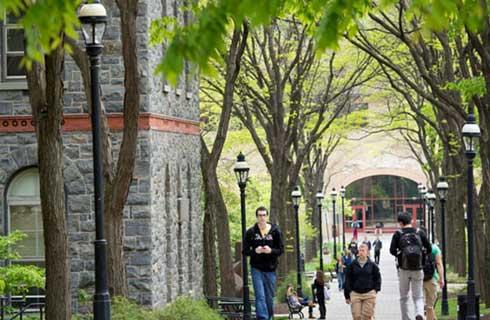
Doctor of Philosophy in Political Science
学历文凭
Ph.D.
开学日期
课程费用总额


Doctor of Philosophy in Philosophy
学历文凭
Ph.D.
开学日期
课程费用总额


Master of Arts in Philosophy
学历文凭
Masters Degree
开学日期
课程费用总额


Master of Laws
学历文凭
Professional Masters Degree
开学日期
课程费用总额

其他相关课程
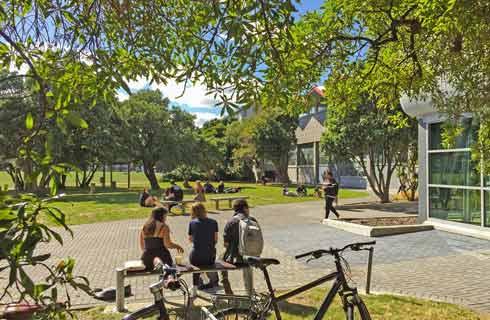
Bachelor of Science in Engineering Management - Biomedical Engineering (Neural Engineering Track)
伊利诺伊理工大学-CEG
学历文凭
Bachelor Degree
开学日期
课程费用总额


生物医学工程专业双理科学士学位,监管生物医学工程领域的工程学硕士
 乔治华盛顿大学
乔治华盛顿大学泰晤士高等教育世界大学排名:209
学历文凭
Combined Baccalaureate and Master's Prog
开学日期
课程费用总额

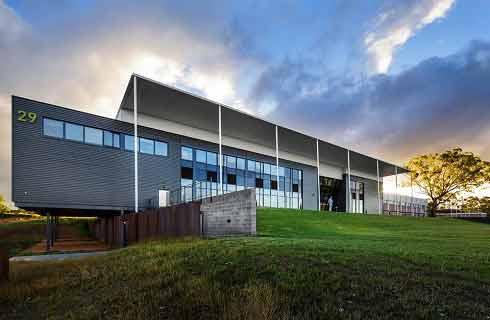
电气和计算机工程应用科学硕士-生物医学工程
 滑铁卢大学
滑铁卢大学学历文凭
Masters Degree
开学日期
课程费用总额

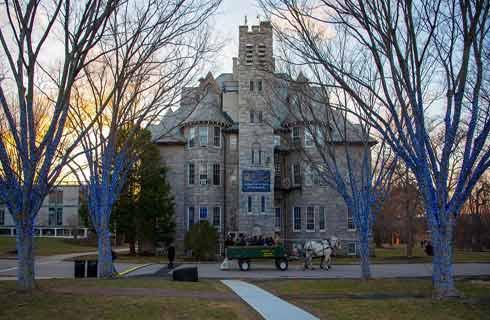
Doctor of Philosophy in Biomedical Engineering
 南佛罗里达大学
南佛罗里达大学泰晤士高等教育世界大学排名:395
学历文凭
Ph.D.
开学日期
课程费用总额


生物医学工程理学硕士
 新泽西理工学院
新泽西理工学院泰晤士高等教育世界大学排名:549
学历文凭
Masters Degree
开学日期
课程费用总额


Master of Science in Biomedical Engineering - Biophotonics
 加州大学欧文分校
加州大学欧文分校学历文凭
Masters Degree
开学日期
课程费用总额










